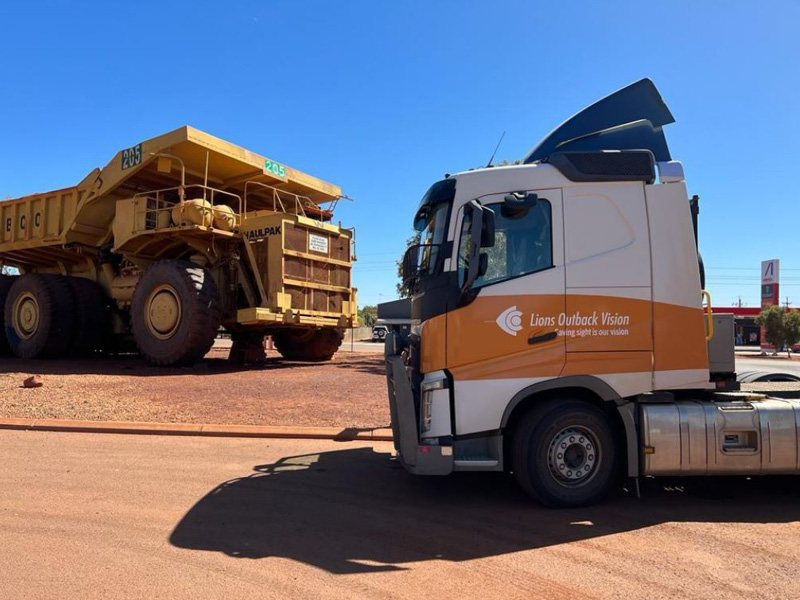The gift of sight – and life – is possible through a remarkable Lions Eye Institute innovation that delivers world-class health care to people living in remote communities.
Broome-based Lions Outback Vision, and ophthalmologist Dr Angus Turner, are spearheading a 12-month pilot program to prove that they can deliver the top-class service based on groundbreaking research involving artificial intelligence.
Research published by Lions Outback Vision found that AI was better than specialists in detecting diseases based on information in an eye scan.
The group has now fitted out a vehicle with Australia’s first retinal camera with fully integrated AI capabilities.
The ability for an AI health review based a retinal scan promises to revolutionise the way health services are delivered in remote parts of the State.
The Lions program is one of 10 finalists vying for a $5 million prize in The Challenge, a State Government-funded competition to identify world-leading medical research and innovation solutions that may revolutionise health care.
BHP, Rio Tinto, and the Future Health and Medical Research Innovation Fund have partnered to deliver the $5 million project, with additional support also being provided by the Royal Flying Doctor Service.
Dr Turner provided an overview of the project at the September meeting of Port Hedland Industries Council’s Community Industry forum.
There were also presentations from Fortescue Iron Bridge General Manager Graham Howard and Town of Port Hedland Chief Executive Officer Carl Askew.
Iron Bridge shipped the first iron ore from the mine in July this year.
A total of $3.6 billion in goods and services have been sourced within WA for the project and its operations, including more than $370 million awarded to local Indigenous businesses since 2020, Mr Howard said.
Mr Askew said the council had just closed its community survey and was working through the responses from around 1500 people.
The council was focused on issues including housing availability and affordability, community safety, and the liveability and amenity of the town.
“It was a coup to get the Prime Minister and Cabinet here and we take every opportunity to raise with them the importance of this town and the value of this town and the reinvestment that needs to happen,” Mr Askew said.
The council had spent time building significant relationships in Canberra and Perth.
Housing affordability and availability was a handbrake on attracting people to the town and the State and Federal Governments had a role to play in providing solutions.
He said the council was about to go to tender for the construction of a workers’ village to provide housing for people not working in the mining sector but exposed to the town’s high accommodation costs.
Mr Askew said the mix of one and two-bedroom units would not provide a commercial return but there was a social dividend in making the housing available.
The council would also soon release its new community safety plan.
“It’s a difference way of looking at the community and tackling community safety,” he said. “We are not the sole agency responsible, but it clearly comes across in all our surveys it is one of the issues we need to prioritise.”


